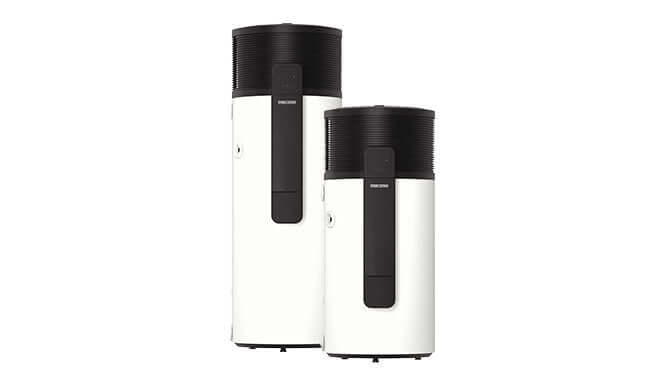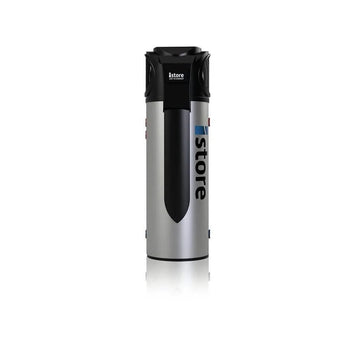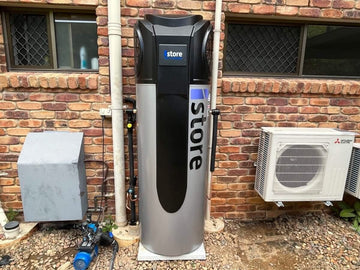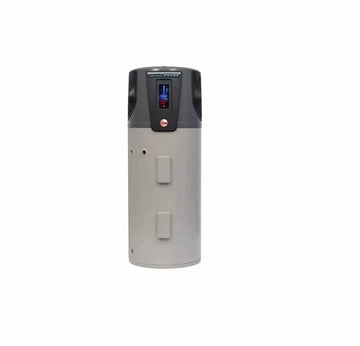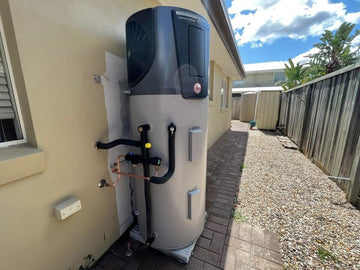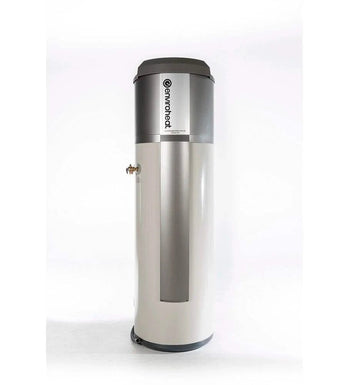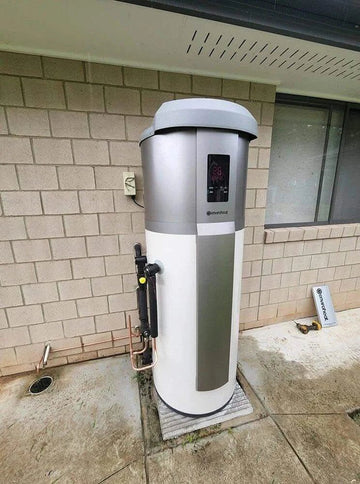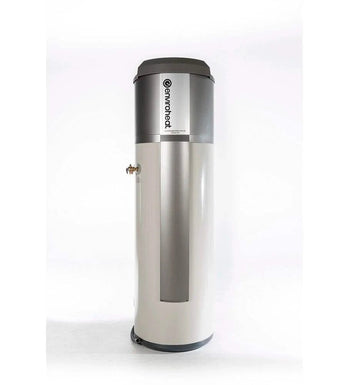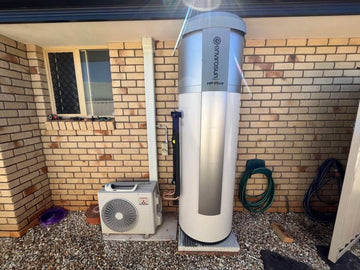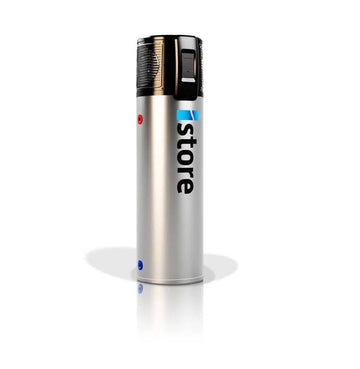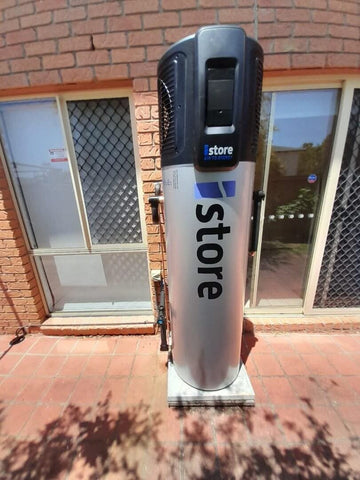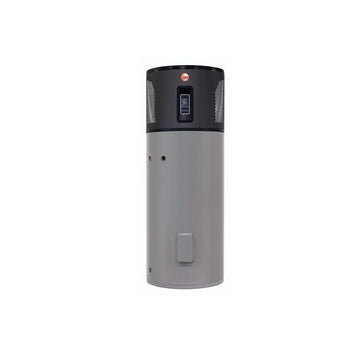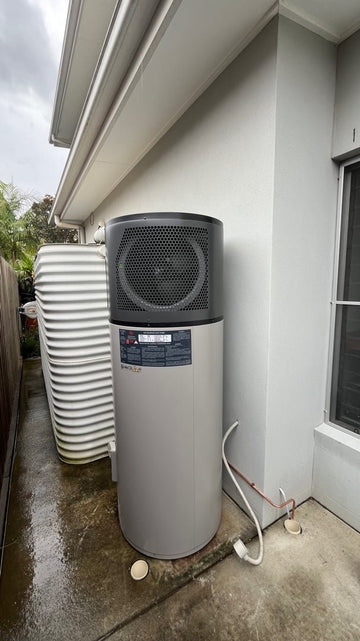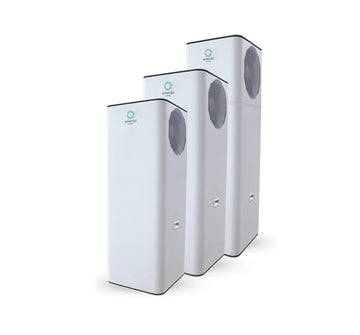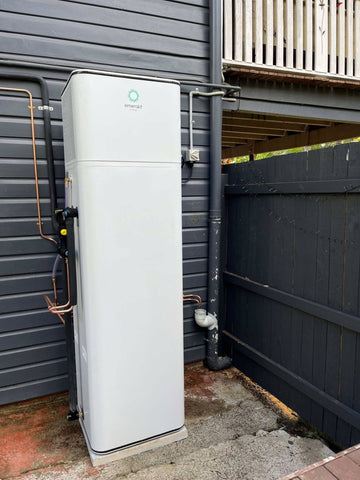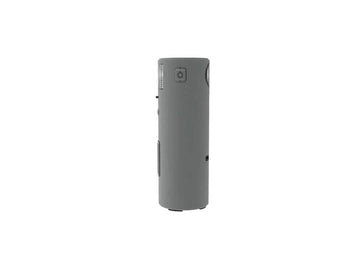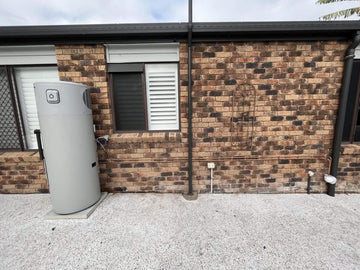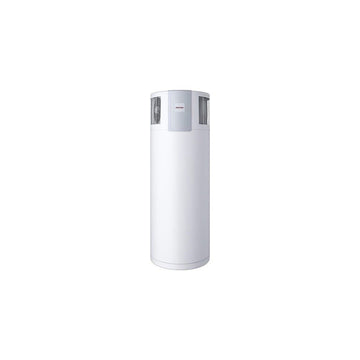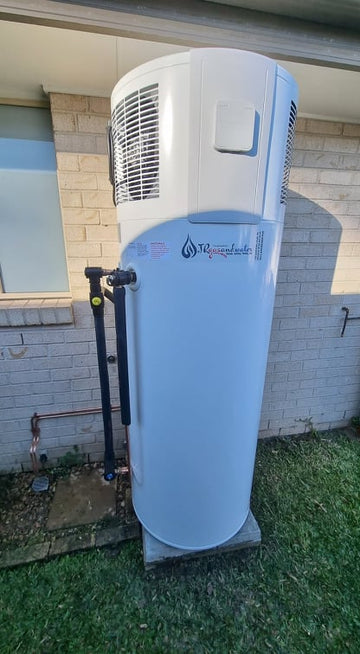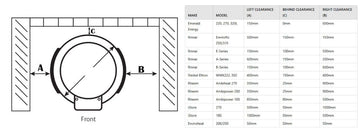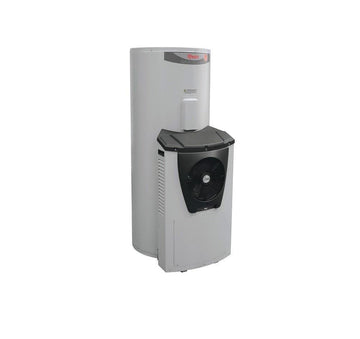Heat Pump Hot Water Systems Supplied & Installed in Brisbane & Gold Coast
Looking to slash energy bills without sacrificing hot water reliability? Heat pump hot water systems are the go-to eco-friendly alternative for Brisbane and Gold Coast homes—especially if your roof isn't ideal for solar panels. At JR Gas & Water, we supply and install leading heat pump systems built for performance, efficiency, and long-term savings.
Why Choose a Heat Pump Hot Water System?
A heat pump draws warmth from the air—even in cooler temps—and uses it to heat water efficiently. It's a smart solution when direct solar isn't viable.
✅ Save up to 70% on your hot water energy usage
✅ Eligible for government rebates and STCs
✅ Works day or night—even in shade or cloud cover
✅ Great for replacing electric storage units
✅ Long lifespan: 10–15+ years with proper maintenance
Want to understand the technology? See our components and principles of a heat pump system.
How Heat Pump Water Heaters Work
Unlike traditional electric heaters, heat pumps operate like reverse-cycle air conditioners:
-
The system extracts heat from ambient air.
-
This heat is compressed and transferred to the water tank.
-
An electric booster ensures consistent output in colder weather.
-
Hot water is stored in an insulated tank for anytime use.
Need a breakdown of how systems compare? Check out heat pump vs electric vs solar vs gas systems.
Best Heat Pump Brands We Install
We only work with trusted, high-performance brands:
-
Stiebel Eltron WWK – Reliable performance and sleek German engineering. (Review here)
-
iStore – Excellent energy efficiency with integrated monitoring. (Review here)
-
Rinnai Enviroflo – Quiet operation, strong warranty. (Review here)
-
Enviroheat – Affordable, great for small to medium households. (Review here)
-
Midea – Value-for-money option with consistent performance. (Review here)
Heat Pump Hot Water System Prices
💰 Typical Supply & Install Prices:
| System Type |
Price Range (Installed) |
| Entry-Level |
$2,500 – $3,500 |
| Mid-Tier |
$3,500 – $4,800 |
| Premium Models |
$4,800 – $6,000+ |
What affects the price?
✔ Tank size
✔ Brand/model
✔ Site access and plumbing requirements
✔ Switchboard upgrades (if needed)
✔ Eligible rebates & STCs
Want help choosing the right model? View our 2025 best heat pumps award list.
Rebates & Government Incentives
Heat pumps are eligible for generous incentives:
✅ STCs – Usually worth $800–$1,200 depending on location
✅ State-based rebates for replacing electric systems
✅ Low-income household upgrade offers (varies by region)
Learn more in our heat pump rebate guide.
Installation Requirements
Our licensed installers ensure everything’s compliant and efficient:
✔ Adequate airflow for heat exchange
✔ Near power and plumbing connections
✔ Level and stable base for outdoor units
✔ Booster check and safety certification
✔ Full commissioning for optimal performance
Installation usually takes 3–6 hours. We handle everything—removal, install, cleanup.
Maintenance & Lifespan
Heat pumps are built to last, especially with regular care:
✔ Clean filters & vents
✔ Annual inspections
✔ Tank flush every 3–5 years
✔ Check booster and pressure relief valve before winter
See how long heat pumps last.
Is It Worth It?
✔ Yes—especially if your home doesn’t suit rooftop solar
✔ Ideal for replacing electric systems
✔ ROI in 3–6 years, with ongoing savings long-term
Still on the fence? Explore our head-to-head heat pump comparison guide.
Frequently Asked Questions
1. What size heat pump hot water system do I need?
Most families of 4 need a 270L system. Smaller households may only need 180L.
2. Do heat pumps work in cold weather?
Yes, modern systems include boosters and operate efficiently even in cooler climates.
3. Can I get a rebate for upgrading to a heat pump?
Absolutely. Most homes qualify for federal STCs and may be eligible for state-specific rebates.
4. Are heat pumps noisy?
No—most models are designed for quiet operation, similar to a split system air conditioner.
5. How long does installation take?
Typically 3–6 hours, depending on the property layout and any switchboard work.


